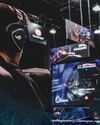
India’s emergence as a mobile-first nation is undeniable. With mobile broadband (MBB) reaching 65% penetration (TRAI July 2024), it is easy to see why some believe India does not need fixed broadband and mobile connectivity is enough to meet the nation’s digital demands. However, this thinking overlooks two critical aspects: the explosive growth in data consumption and the limitations of mobile networks.
Globally, countries are investing in optic fibre-based fixed broadband (FBB) to significantly increase data usage. A glance at comparable nations reveals the stark difference between their mobile and fixed broadband landscapes and that of India (see Comparative Data on Mobile and Fixed Broadband).
As the data illustrates, India lags in fixed broadband penetration compared to other nations. Countries like Japan, Sweden, and the United States boast much higher FBB penetration, correlating with their higher data consumption.
BROADBAND SPEEDS: A COMPARISON OF GLOBAL STANDARDS
India’s broadband speed standards are relatively low, with a minimum of 2 Mbps. In comparison, other nations have set much higher minimum speed requirements, ensuring better connectivity for consumers (see Broadband Speed Regulations Worldwide). It is no surprise that higher broadband speeds contribute significantly to economic growth.
THE ECONOMIC IMPERATIVE FOR FBB EXPANSION
The increasing data consumption worldwide has made it imperative for many economies to expand fibre-based FBB infrastructure. In the United States, monthly data usage per FBB connection has surged to 640 GB, and this figure is expected to reach 700 GB by the end of 2024. In Europe, the average monthly consumption has hit around 500 GB and continues to grow.
Denne historien er fra October 2024-utgaven av Voice and Data.
Start din 7-dagers gratis prøveperiode på Magzter GOLD for å få tilgang til tusenvis av utvalgte premiumhistorier og 9000+ magasiner og aviser.
Allerede abonnent ? Logg på
Denne historien er fra October 2024-utgaven av Voice and Data.
Start din 7-dagers gratis prøveperiode på Magzter GOLD for å få tilgang til tusenvis av utvalgte premiumhistorier og 9000+ magasiner og aviser.
Allerede abonnent? Logg på

Cloud endoscopy breakthrough for real-time remote diagnostics
NTT Corporation and Olympus Corporation have demonstrated the feasibility of real-time remote diagnosis and treatment using the world's first endoscopy system powered by IOWN All Photonics Network (APN) technology. The breakthrough experiment successfully processed endoscopic videos on a server located 150 km away, overcoming latency issues and enabling seamless diagnostics.

Rise of the homegrown telecom infrastructure
Telecom infrastructure, once led by US and European designs and made in China, iS Now increasingly designed and manufactured in India, marking a pivotal shift

Balancing innovation and regulation for a connected future
Crafting agile governance ensures equitable, sustainable growth, blending innovation with societal protection in a hyper-connected digital age

Driving transformative shifts towards digital leadership
India's telecom sector, driven by 5G, bold policies, and cross-sector collaborations, is paving the way to global digital infrastructure leadership

Scaling AI in data centres for the next big leap
GPU-optimised data centres are vital for advancing India’s Al ambitions, enabling it to meet growing computational demands and maintaining global competitiveness

Bridging gaps with AI's transformative communication wave
AI-driven real-time communication reshapes industries, enhancing connections, operational efficiency, and immersive experiences in a digital-first world

Weaving the fabric of CDN efficiency
Local peering transforms CDNs by cutting latency, boosting reliability, and ensuring seamless, high-speed delivery for modern digital experiences

From orbit to opportunity: Redefining connectivity
India's satcom sector is set to revolutionise connectivity through hybrid networks, bridging the digital divide and driving innovative technologies for growth

Orchestrating telecom's smart future
AI and automation can revolutionise telecom networks, crafting intelligent, selfoptimising systems to meet future demands and deliver seamless connectivity

Unlocking the true potential of IoT
Specialised silicon and 5G are set to redefine loT's future, driving AloT innovations that deliver real-time intelligence, security, and seamless connectivity